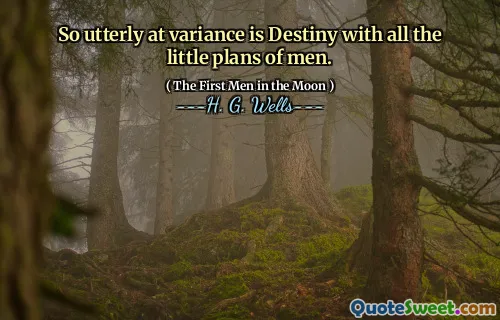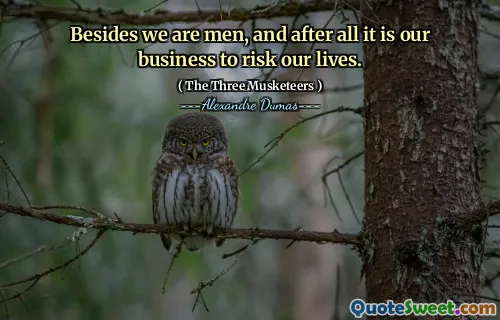
What is this spirit in man that urges him forever to depart from happiness and security, to toil, to place himself in danger, even to risk a reasonable certainty of death? It dawned upon me up there in the moon as a thing I ought always to have known, that man is not made simply to go about being safe and comfortable and well fed and amused. Against his interest, against his happiness he is constantly being driven to do unreasonable things. Some force not himself impels him and go he must.
In "The First Men in the Moon," H.G. Wells explores the inner drive of humanity that compels individuals to seek out challenges and risks, even at the expense of their happiness and safety. He questions why people are motivated to venture into danger and embrace toil, suggesting that there exists a deep-seated force within them that pushes them beyond mere comfort and security. This urge seems to contradict their own interests and well-being, leading them to take unreasonable actions.
Wells reflects on this phenomenon, recognizing that human existence is not merely about seeking enjoyment or avoiding hardship. He implies that there is a fundamental part of mankind that yearns for adventure and exploration, which can often lead to perilous situations. Ultimately, the author suggests that this intrinsic drive is






